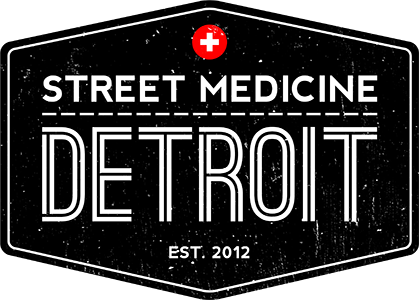Street Medicine Detroit President, Esther Chae, attended the International Street Medicine Symposium in Geneva, Switzerland from October 20-22; while there she presented two posters created by our SMD Research Department. Our communications coordinator, Kristy Abraham, sat down with her to discuss how the symposium impacted her perception of homelessness and the Street Medicine movement as a whole:
Kristy: So tell me about this conference. What was it about?
Esther: The conference was the International Street Med Symposium that The Street Medicine Institute puts on every year. The conference aim is to gather different street medicine organizations around the world in order to network and share ideas. Wayne State School of Medicine’s organization “Street Medicine Detroit” (SMD) presented two posters at the conference. One regarding the research we conducted with Detroit Receiving in order to determine the impact SMD has had in Emergency Department enrollments in Detroit. The other poster looking at patient demographics and growth trends from the last five years of the SMD program in order to reflect and improve or model.
Kristy: How did attending this conference change your perspective on homelessness around you? What did you learn?
Esther: Hearing the stories of what people were going through there and seeing how much someone’s environment can impact their health was really eye opening. For people experiencing homelessness, their body perception isn’t the same as a healthy and sheltered individual. When you’re more concerned about where you’ll sleep on a given night, you’re less likely to recognize and attend to health concerns. After prolonged periods of homelessness, many individuals recognized basic needs of their own bodies. One of the speakers said that “when people become invisible to others, they also become invisible to themselves.” The psychology behind it is incredibly complex; even time becomes relative. When you don’t have a specific place to be during the day, you lose track of date and time- which is often one of the reasons homeless individuals are more likely to miss commitments such as medical appointments.
Kristy: Detroit is a city of pockets. On one street, there’s a new stadium being built and new restaurants opening up every day, but just a few blocks down there’s incredible poverty. How has attending this conference changed the way you view your surroundings?
Esther: My perception about community service changed a lot. I think about the work we do in Detroit and I realize that no matter where I am, the reason I do street medicine is to respond to a need in the community. The needs of the community changes all the time, and as physicians we can’t just be bystanders; we have to be actively engaged and respond to that. We have to attend to our community as it changes and make sure everyone in the community is still taken care of.
Kristy: Now that you’ve learned more about the psychology of homelessness, what do you think we can we do to empathize more and develop a stronger connection with our patient population?
Esther: We have to keep it centered to our patients. Understanding their reality is the most important aspect of humanizing the process. Rather than thinking about ourselves as physicians in training and asking what can we gain out of this process, we need to think about what they need. Who are they? By getting to know our patient population, we can better see the world from their perspective. I know that’s really hard to do, but that’s the difference between sympathy and empathy: because instead of feeling sorry for them, you share that feeling with them and let them know that they are not alone.
Kristy: Now that you’ve seen the reach of street medicine on a larger scale, how do you think Wayne State School of Medicine’s street medicine program compares to other organizations across the world? How do you think this program will impact the students as future physicians?
Esther: What makes us different is that SMD is student-led. It’s a strength, and it’s also weakness. Since we don’t have a full time staff dedicated to this, we depend on volunteers, and sometimes that’s hard because medical students have other obligations and opportunities. But on the other hand, when a group young people get together there’s an energy that’s really unique and refreshing. We’re the next generation of medicine. Even though it’s a short duration in medical school, hopefully these four years can really have an impact on the kind of doctors we become. We’re so lucky to have such amazing community partners and preceptors like Dean and Dr. Bryce. They teach us a lot of social aspects of medical care that we don’t learn in school, like keeping people safe. We learn from our preceptors, but we learn from our patients the most.
A lot of people at the conference talked about how Street Medicine has changed their medical education and has changed how they would practice in the future. I know that it has definitely changed my perspective of medicine. You don’t really understand all the different social determinants of health until you have to see what the patients go through on a daily basis. I feel like I can see things outside of the box now. I hope that I’ll be more conscious of that as a physician: to make sure I get to know patients and their realities, and not just their symptoms. Cause it does matter; they do correlate.
Kristy: It sounds like it was quite an impactful symposium, we’re glad Street Medicine Detroit could be represented. Thanks so much for your time, Esther.

